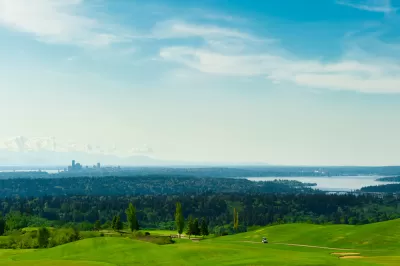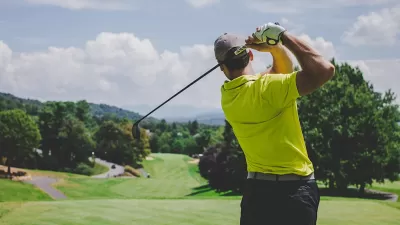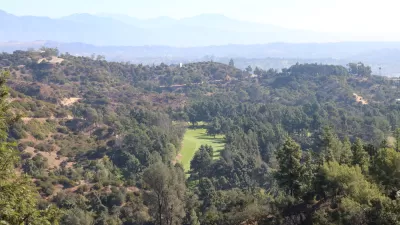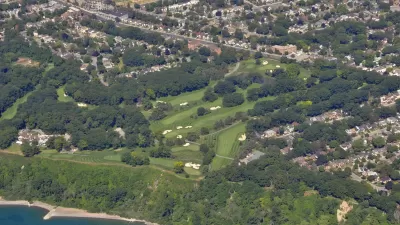Seattle recently completed a strategic business plan for its city-owned municipal golf courses. The first recommendation of the report: "commit to golf as a recreational program offered by the City on par with other recreational offerings."

"What should Seattle do with its public golf courses and the 528 acres of mostly green space they occupy?"
That's the question Scott Hanson poses at the beginning of an article about the findings of a recent study by the city of Seattle [pdf] to figure out the future of public golf courses in the growing city.
"Much of the study focused on the financial health and sustainability of the golf courses. From 2013-17, the courses combined to have a net profit in operating income each year. But factoring in the 5 percent the courses give back to the Seattle Parks fund and debt service on improvements made at the courses put them $1.8 million in the red," according to Hanson.
With better weather in 2019, the vendors who operate the Seattle municipal golf courses report being half a million dollars ahead of budget. Still, debt service isn't going anywhere for a while, and many in the public are clamoring for the courses to be devoted to something other than a sport requiring a fair amount of skill and time.
One of the consistent messages of golfers in quoted the article is that golf, when played on public courses, is far more inclusive than its country club reputation. Bill Schickler, founder and president of Premier Golf Centers is quoted in the article saying, "You’ve got grandparents playing with grandkids and kids, and you’ve got women and men of all ethnicities playing these courses and they are very much in need as a resource for sport and recreation in the community."
According to Hanson, a groundswell of support, under the Save Seattle Golf banner, has risen since the report was released and golfers began worrying about the implications of the city asking these kind of existential questions about the future of the sport. As Hanson reports, municipal golfers in the city can probably rest easy for now. Both the report and Mayor Jenny Durkan express support for public golf in the city.
FULL STORY: Seattle considering what to do with 4 public golf courses and 528 acres of green space they cover

Planetizen Federal Action Tracker
A weekly monitor of how Trump’s orders and actions are impacting planners and planning in America.

Maui's Vacation Rental Debate Turns Ugly
Verbal attacks, misinformation campaigns and fistfights plague a high-stakes debate to convert thousands of vacation rentals into long-term housing.

Restaurant Patios Were a Pandemic Win — Why Were They so Hard to Keep?
Social distancing requirements and changes in travel patterns prompted cities to pilot new uses for street and sidewalk space. Then it got complicated.

In California Battle of Housing vs. Environment, Housing Just Won
A new state law significantly limits the power of CEQA, an environmental review law that served as a powerful tool for blocking new development.

Boulder Eliminates Parking Minimums Citywide
Officials estimate the cost of building a single underground parking space at up to $100,000.

Orange County, Florida Adopts Largest US “Sprawl Repair” Code
The ‘Orange Code’ seeks to rectify decades of sprawl-inducing, car-oriented development.
Urban Design for Planners 1: Software Tools
This six-course series explores essential urban design concepts using open source software and equips planners with the tools they need to participate fully in the urban design process.
Planning for Universal Design
Learn the tools for implementing Universal Design in planning regulations.
Heyer Gruel & Associates PA
JM Goldson LLC
Custer County Colorado
City of Camden Redevelopment Agency
City of Astoria
Transportation Research & Education Center (TREC) at Portland State University
Jefferson Parish Government
Camden Redevelopment Agency
City of Claremont





























